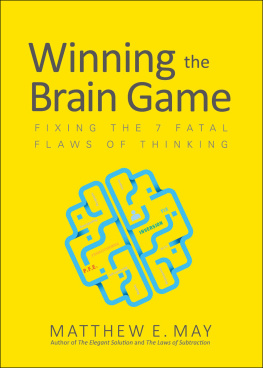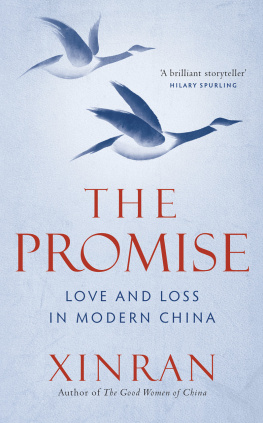The Boy Who Loved Windows

Parts of this book originally appeared in The Atlantic Monthly.
Many of the designations used by manufacturers and sellers to distinguish their products are claimed as trademarks. Where those designations appear in this book, and where Da Capo Press was aware of a trademark claim, the designations have been printed in initial capital letters.
Copyright 2003 by Patricia Stacey
All rights reserved. No part of this publication may be reproduced, stored in a retrieval system, or transmitted, in any form or by any means, electronic, mechanical, photocopying, recording, or otherwise, without the prior written permission of the publisher. Printed in the United States of America.
First Da Capo Press paperback edition 2004
eISBN 978-0-7867-4207-3
Cataloging-in-Publication data for this book is available from the Library of Congress.
Published by Da Capo Press, A Member of the Perseus Books Group http://www.dacapopress.com
Da Capo Press books are available at special discounts for bulk purchases in the U.S. by corporations, institutions, and other organizations. For more information, please contact the Special Markets Department at the Perseus Books Group, 11 Cambridge Center, Cambridge, MA 02142, or call (800) 255-1514 or (617) 252-5298, or e-mail .
Set in 12-point Bembo by the Perseus Books Group
TO CLIFF, ELIZABETH, AND WALKER
First and foremost, I wish to acknowledge my sister, Paula Stacey, a gifted writer and editor, whose help here, as it has throughout my life, pushed me to stretch and grow, and of course, revise. I am grateful to my dear friend Julie Fisher who gave generously of her prodigious talents and companionship in delicious long discussions about this project. Cliff, my husband, tirelessly devoted his energy and support to me, and lent his architects eye for detail. I wish also to thank my editor, Merloyd Lawrence, for her patience, her sensitivity, and her keen instincts and judgment, and C. Michael Curtis for his steady wisdom and for teaching me the importance of story. Thank you to Charles Everitt for his sense of humor and for knowing where this belonged. I am very grateful to my insightful first readers: Carol Edelstein, Robin Barber, and the Wednesday night writers group, as well as Peter J. Smith, Andrea Dresdner, Tammy Barbasch, Elizabeth McKenzie, and Janet Sadler, and my superb fact checker, Elizabeth Shelburne. I am especially grateful to my amazing daughter, Elizabeth, for her willingness to share me with this project and for sometimes writing with me side by side. Thanks to my wonderful retreat companion Therese Sillars for her art of turning cheap paint into gold. I am extremely grateful to those who cared for my children so I could work on this project: daycare provider extraordinaire Donna Cavanagh as well as Carol and Robert Resnick, Polly Stacey, and Luke Dyson. Thanks to Jane Deihl, Paula Atkin, Peter Stacey, Jacqueline Stuart, Carolyn Thomas, and Roberta Montgomery for their support. Finally I wish to acknowledge the people at REACH for their courage and creativity.
A note about names: In the interest of truthfulnessand because I believe its important to show that real people change real peoples livesI use actual names in this book. I have, however, changed the names of a few very minor characters to protect privacy. They appear as Victoria, Catherine, Lauri, and Lois.
Contents
As human beings, our greatness lies not so much in being able to remake the world... as in being able to remake ourselves.
MAHATMA GANDHI
I cannot say with true certainty when Walkers story began. It may have begun at conceptionwhen two cells found each other, their parts separating, entwining, beginning their work of tinkering together a boy. Or perhaps this story began generations ago, building inexorably, like a landscape with all its faults and strange beauty. It might, too, be a modern storysomething in the air, something in the water. Or it may have been precipitated by an injection (the hand of science with its innocent, and perhaps arrogant, need to improve on how we are born, or die). For my part, I can only say that it began with a suspicion that seemed to obliterate all future possibility and ended with everything being possible.
To the Sirens first shalt thou come, who bewitch all men, whosoever shall come to them.
HOMER
THE DAY BEFORE my son was born, my four-year-old daughter, Elizabeth, and I were sitting in her room looking out at the treetops. That afternoon, mid-October in New England, the leaves seemed almost burning with coloryellow, orange, and purpleand I was trying to explain to her how something, before death, could be so glorious. At that moment I wanted to tell her everything, about the science of trees, about the odd and mysterious cycles that make up this life, the paradoxes. I had the perverse idea that she might want to know that the trees themselves were choking their own leaves of chlorophyll, but Elizabeth exclaimed, Oh, I just have to be thereout there! She ran down the stairs. I followed slowly, hefting my stomach, breathing like a geriatric. (By then I couldnt even see my feet.) Outside, the wind was up, a hundred leaves seemed to be raining toward us and she held her hands in the air, the way kids do on rainy days, as if she wanted to catch every living and dying thing in the sky. Afterward, I pushed her on the tree-swing and she jumped high into a pile of leaves, laughing and falling so deeply she almost disappeared.
What she didnt know those moments of that day in 1996, what I couldnt have known either, was that our lives were about to change forever. She didnt know that by six the next morning someone would put a needle into my spine, that I would flinch, that a doctor would urgently grab me by the arm and insist, Now listen. Dont move. Ive got to do this again. Weve only got ten minutes to get that baby out. She wouldnt know that a baby boy, wrapped backward against my spine, would be pulled out and handed to his father who would be standing next to me. How could she ever imagine that when I saw her brother for the first moment, I wouldnt feel what I knew I should?
When does one begin to know a child? It seemed to me we had known Elizabeth from the moment of her emergence. I had been stunned by her gaze the second she came into the world: all head, pupils, awarenesspure consciousness. The eyes! The eyes! the nurses, doctor, and even a technician had all called out at once. She grabbed my husbands finger and hasnt let go since.
Yet Walkers birth was different somehow. Nothing seemed right. He didnt cry when he was born. The nurses tried to make him but succeeded in producing only a whimper, and then, when theyd handed him to Cliff and he lay in his fathers arms, he looked like a small, skinned ferretbloody, arms awry.
Did other mothers of newborns feel the way I did?
I remembered that my former boss had once said of his daughter: She looked like hamburger when she was born! What struck me was the absolute affection, humor, joy with which he delivered the information, as if to say: My wet little wad of gristle was really a swan.
Next page












